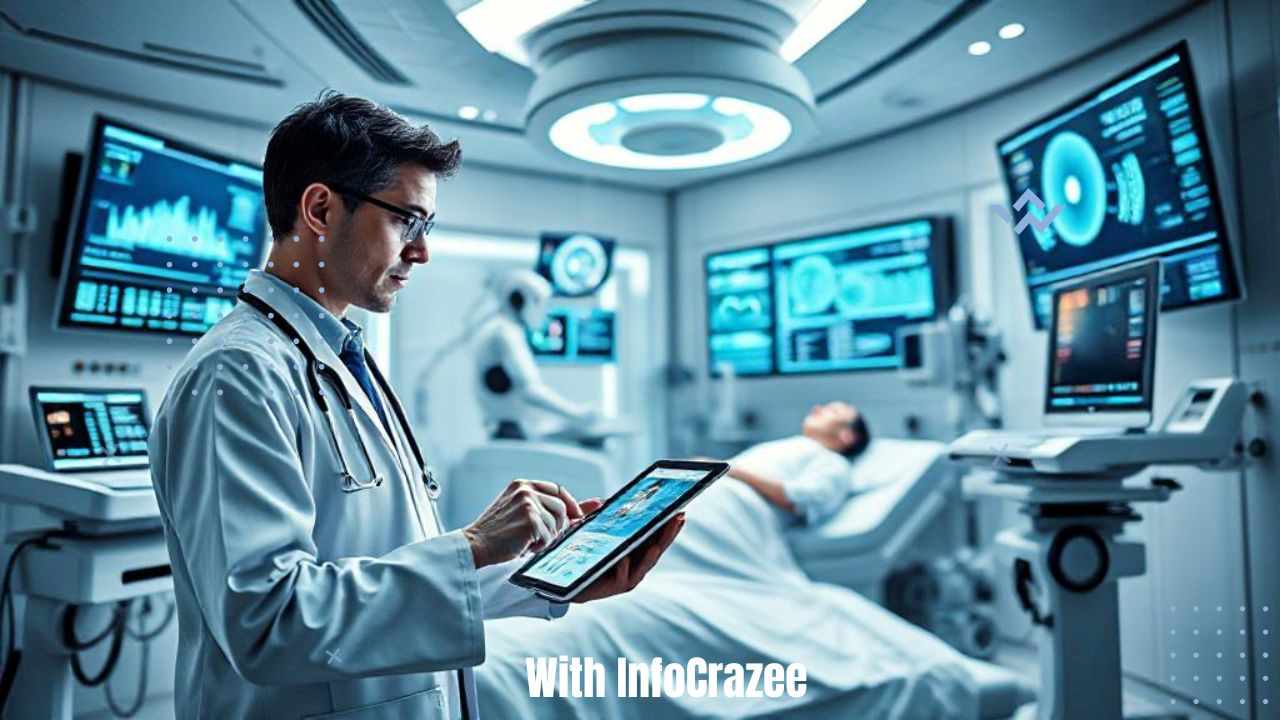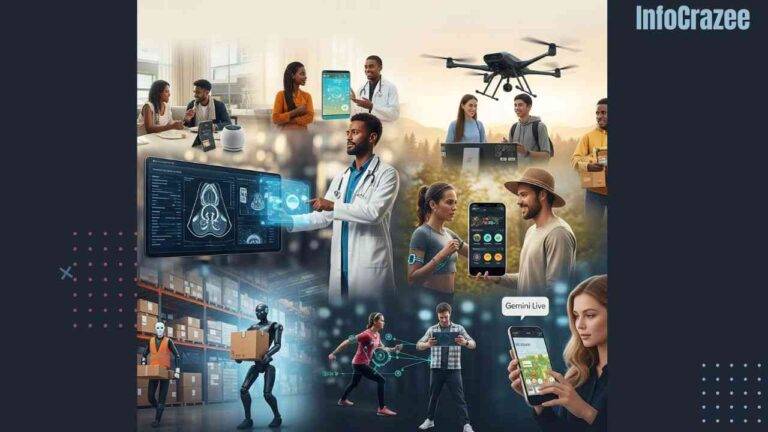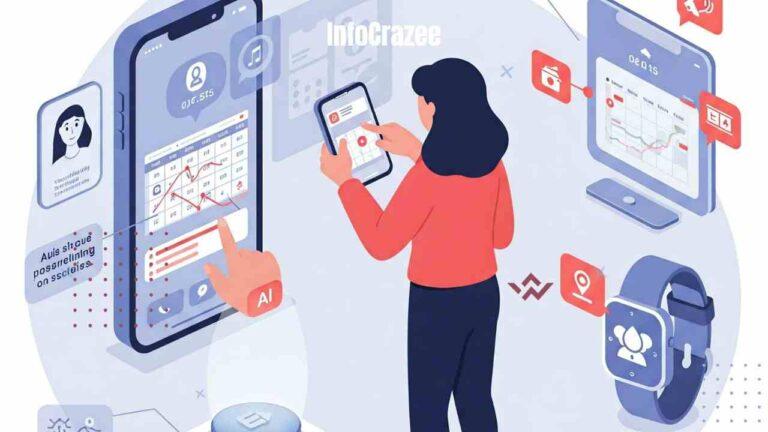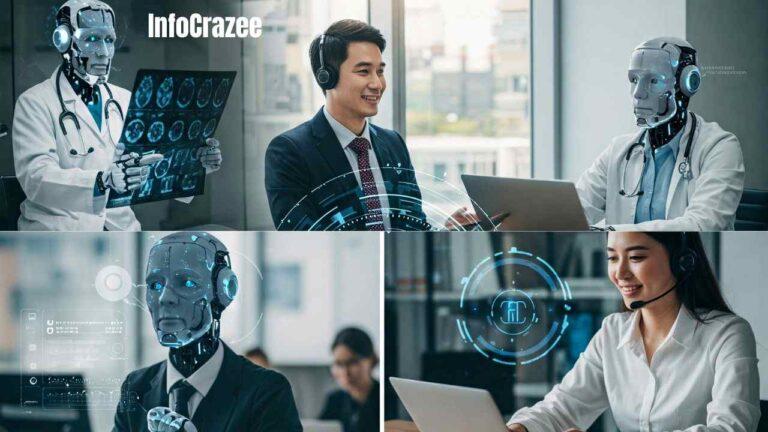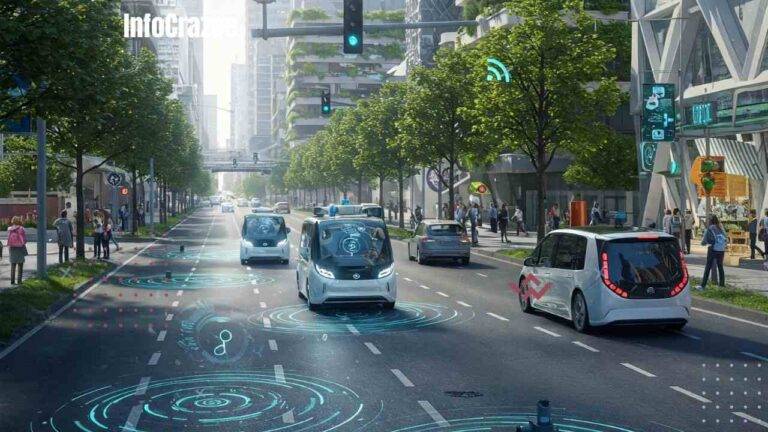How AI Is Changing Healthcare: Smarter, Faster, and More Accurate Care
The healthcare industry has always been focused on one thing: improving patient outcomes. But with the rise of artificial intelligence (AI), the way we approach healthcare is changing fast. From smarter diagnoses to personalized treatments, AI is revolutionizing how doctors, nurses, and other medical professionals deliver care. At infocrazee, we love breaking down complex topics like this, so let’s take a closer look at how AI is reshaping healthcare—and what it means for you.
1. AI for Smarter Diagnoses
When you go to the doctor, you want them to quickly and accurately figure out what’s wrong. But sometimes, diagnosing certain conditions can be tricky and time-consuming. That’s where AI comes in.
What’s Happening?
- AI-Powered Imaging: AI algorithms are now helping doctors analyze medical images like X-rays, MRIs, and CT scans. These tools can spot abnormalities like tumors or fractures faster and more accurately than ever before.
- Early Detection: With AI, doctors can detect diseases like cancer, heart conditions, and neurological disorders at much earlier stages, which can make treatment more effective and increase the chances of recovery.
Real-World Example
Imagine a situation where a radiologist reviews hundreds of X-rays every day. While human eyes might miss something, AI-powered tools can quickly scan images and highlight potential issues, allowing doctors to focus their attention on the areas that need further investigation.
2. Faster and More Efficient Healthcare
One of the biggest challenges in healthcare is the sheer volume of data. From patient records to lab results, there’s a lot to manage. AI helps streamline this process, making healthcare faster and more efficient.
What’s Happening?
- Automated Administrative Tasks: AI can take care of things like appointment scheduling, patient reminders, and even processing insurance claims. This frees up healthcare professionals to focus more on patient care.
- Faster Test Results: AI can analyze lab results quickly and even predict patient needs, speeding up the process of diagnosing and treating conditions. For example, AI algorithms can instantly assess bloodwork to help doctors make faster decisions.
Real-World Example
Let’s say you go for a blood test. Instead of waiting days for the results to come back, AI can instantly analyze the data and provide the doctor with important insights. This reduces wait times and helps you get the treatment you need faster.
3. Personalized Treatment Plans
No two people are exactly the same, and neither are their health conditions. AI is helping doctors create more personalized treatment plans that are tailored to your unique needs.
What’s Happening?
- Genomic Data: AI is being used to analyze genetic information to help doctors understand how different treatments will affect individual patients. This is especially helpful in areas like cancer treatment, where the right approach can vary greatly from person to person.
- Predicting Outcomes: AI algorithms can analyze vast amounts of patient data, including lifestyle, genetics, and medical history, to predict how well a treatment might work for you. This means doctors can make more informed decisions about what treatments will be most effective.
Real-World Example
Think about someone undergoing cancer treatment. By using AI to analyze their genetic data, doctors can determine which chemotherapy drugs are most likely to work, reducing the trial-and-error approach that can often make treatment feel like a guessing game.
4. AI-Powered Virtual Health Assistants
We’ve all seen the rise of virtual assistants like Siri and Alexa, but in healthcare, virtual assistants are becoming much more than just a convenience. They’re becoming powerful tools for managing our health.
What’s Happening?
- 24/7 Access to Information: AI-powered virtual assistants can answer health questions, help manage medications, and even remind patients to take their pills. They’re like having a personal health coach available all the time.
- Telemedicine Support: Virtual assistants can help connect patients with doctors remotely, making healthcare more accessible, especially for those who live in remote areas or have mobility challenges.
Real-World Example
Imagine having an AI assistant on your phone that reminds you to take your medication at the right time, tracks your symptoms, and even helps you schedule your next doctor’s visit—all without you needing to leave your house.
5. AI in Drug Discovery and Development
Creating new drugs is a long, expensive process. But with AI, researchers can speed up the discovery of new treatments, making it easier to find effective solutions for diseases.
What’s Happening?
- Drug Discovery: AI can analyze massive databases of chemical compounds to identify which ones are most likely to work as potential treatments for diseases. This can drastically reduce the time it takes to find new drugs.
- Clinical Trials: AI is helping researchers better design and manage clinical trials, making them more efficient and ensuring that new treatments are tested thoroughly before they reach the market.
Real-World Example
Let’s say researchers are working to find a treatment for a new virus. AI can help them screen thousands of existing drugs and predict which ones might work, fast-tracking the process and potentially saving lives sooner than expected.
FAQs
1. Can AI completely replace doctors?
No, AI is a tool that helps doctors make better decisions, but it can’t replace the human touch. Doctors still bring empathy, experience, and personal judgment to patient care. AI just makes their job easier and more accurate.
2. How accurate is AI in diagnosing diseases?
AI has proven to be very accurate, especially when it comes to analyzing medical images. However, it’s still important for doctors to review the results and make final decisions based on their expertise. AI is a support system, not a replacement.
3. Will AI make healthcare more affordable?
In the long run, AI has the potential to lower costs by making healthcare more efficient. Faster diagnoses, personalized treatments, and streamlined administrative tasks can reduce the time and resources needed for patient care.
The future of healthcare is bright, thanks to AI. These innovations are making medical care smarter, faster, and more personalized, ultimately leading to better health outcomes for all of us. At infocrazee, we’ll continue to follow the latest advancements in technology and healthcare, bringing you the information you need to stay informed and empowered. The future is now—and AI is leading the way to a healthier tomorrow!
